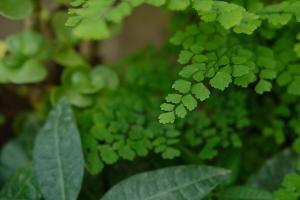Do You Need to Plant Two of Each Fruit Tree?
Planting fruit trees in your garden is an exciting venture. There are many things to consider when starting, such as the variety of tree you want, the location, and the soil type. One question that frequently comes up is whether you need to plant two of each fruit tree. In this article, we'll delve into this question and provide you with some answers.
The Benefits of Planting Two Fruit Trees
There are several benefits to planting two of each fruit tree. One of the most important benefits is cross-pollination. Fruit trees require pollination from bees, butterflies, or other insects to produce fruit. Cross-pollination happens when pollen from one tree fertilizes the flowers of another tree. This process produces fruit that is more abundant, larger, healthier, and tastier.
Another benefit of planting two fruit trees is the risk management it offers. Planting two of the same type of fruit tree diversifies your garden and minimizes the risk of total crop failure caused by disease or pests. If one tree gets infected with a disease or infested by pests, the other tree can still produce healthy fruit.
When Do You Need to Plant Two Fruit Trees?
Not all fruit trees require planting two trees. Some, like most citrus trees, are self-pollinating, meaning that they don't rely on other trees for pollination. However, if you plant two trees of the same variety, it can increase fruit production and improve pollination even in self-pollinating trees.
Other fruit trees, such as most apple, pear, and cherry trees, require cross-pollination. For these trees, planting two or more of the same variety is necessary to ensure the exchange of pollen between the trees, leading to more abundant and better quality fruit.
Exceptions to the Rule
While most fruit trees require planting two or more of the same variety, there are some exceptions to the rule. Some fruit trees, such as peaches and nectarines, don't need cross-pollination, but they still benefit from it. In these cases, planting two or more of the same variety can produce more abundant and better quality fruit, even though it's not required.
On the other hand, some fruit trees, such as figs and persimmons, are self-fertile, meaning that they don't need another tree for pollination. It's not necessary to plant two of each tree for these varieties.
Conclusion
In summary, planting two of each fruit tree is not always necessary, but it can offer many benefits, such as cross-pollination and risk management. Before choosing the number of trees you want to plant, research the type of fruit tree you're interested in and determine its pollination requirements. By doing so, you can ensure a bountiful and healthier harvest for your garden.

 how many times do yo...
how many times do yo... how many planted tre...
how many planted tre... how many pine trees ...
how many pine trees ... how many pecan trees...
how many pecan trees... how many plants comp...
how many plants comp... how many plants can ...
how many plants can ... how many plants and ...
how many plants and ... how many pepper plan...
how many pepper plan...































